#what if it’s two trans women in a relationship?
Explore tagged Tumblr posts
Text
My Incredibly Tired And Defensive Rant On Why I Choose To Interpret Jayvik As Queer
I literally do not use tumblr at all but I feel like I need to scream into the void about this so bear with me.
So Arcane is over, and jayvik is creeping up to be one of the most popular ships of the year already. Nice. The amount of hostility I've seen directed towards shippers, however, is not nice. So let's address it.
"They were confirmed not to be canon by the co-creator!"
A concerning pattern that I've noticed in recent years when it comes to media consumption is that we are becoming extremely reliant on post-release (twitter) statements when it comes to what's canon and what's not.
And I find this very counter-productive; a very fundamental aspect of interacting with art is having the freedom of interpretation.
While yes, I do understand that there always is an intended meaning, that intended meaning should be supported by the art itself, and the consumer should be able to find evidence of it in the art itself.
Same goes for things that are not in the show, or left ambigous -- if it isn't supported by the art itself, then making it canon or denying it's canon-possibility by a twitter statement is redundant.**
I feel like this trend of creators responding to every little thing later on somewhat ruins this ambiguity of interpretations, which ultimately leads to shutting down the possibility of having nuanced discussions on the art.
"Why can't they just be friends?"
They can be friends! They can also be more. That's that, moving on.
"Why can't we have strong male frienships in shows?"
I see this brought up very often, so I am just going to say it, interpreting two male characters as being romantically involved does not support toxic masculinity.
Strong, affectionate male friendships do not lack representation; they're the norm. And if you desire to interpret one of these ambigous friendships as more than a friendship, that is totally fine, because what actually lacks representation in mainstream media is queer relationships between men.
I'd like to remind everyone here that most of the film industry is still cishet men making content with other cishet men in mind. And the sad truth is that a big part of these men refuse to interact with media that has explicit mlm romance. (And then lesbian relationships often get fetishized, which is another can of worms for another day)
I couldn't count on one hand just how many examples I have of shows with queer subtext just subtle enough for the "anti-woke" viewers to be able to shut down the sheer possibility of it being queer subtext. But let's call a spade a spade; if a (queer) person chooses to interpret a relationship as queer subtext, then they have every right to do so.
"Jayvik shippers are just women who fetishize gay relationships"
This one especially irks me the wrong way. First of all, it is a very reductive statement. This might be dramatic on my part but generalizing the entire fanbase is queerphobic and misogynistic.
First of all, based on my observations, an incredible amount of jayvik shippers are queer, if not the majority. Specifically, trans men who relate to either of these characters, but also people who are otherwise queer or genderqueer.
The misogynistic part is going to be a bit more nuanced and possibly even controversial, so bear with me, but I feel like engaging with mlm content for many women is just a safe way to explore sexuality and romance, a way to detach from the reality of "womanhood" and whatever comes with it.
Women being criticized and ridiculed based on the way they interact with fandom/media is a tale as old as time.
It is important to acknowledge that straight women making mlm content does often lead to bad representation, but as far as my experiences with jayvik go, this isn't the norm here.
**Ace Viktor Mini Segment
This Twitter-confirmation-point is why I have a bone to pick with the ace Viktor canon as well, also later on confirmed by Christian Linke to be "the intended interpretation".
As an asexual person, I honestly feel very tired when I see creators "add" ace representation by randomly stating on Twitter that X character is asexual, even though it is never explicitly stated in the show itself.
I am also very tired of the stereotypical introverted workaholic intellect being the ace rep we are getting. Making a character that would not be very into relationships/sex/romance in the first place/was never planned to have a romance arc be your ace rep isn't ace representation. It's a cop-out.
And then also the fact that he is disabled, which adds to another harmful stereotype surrounding the fact that disabled people are often depected as being desexualized.
In conclusion
we have every right to interpret jayvik (or any other fictional characters, for that matter) with a queer viewpoint in mind. Queer people exist. Shows can have multiple queer relationships and multiple kinds of queer relationships.
And you can freely interpret any characters as being queer, even if they're not explicitly stated as such. That's literally it. This one statement could've been the entire post, lol.
There are many other issues that I could address here, but this is already way too long, so thank you, tumblr void.
23 notes
·
View notes
Text
I have a question about WLW couples or relationships that I’m sure you guys will be able to help me answer.
Is it appropriate to say it’s a lesbian/gay couple or lesbian/gay relationship if one or both of the women in it do not identify as either a gay or a lesbian woman?
The reason why I ask is that I’m bisexual and a woman but if I was in a relationship with another woman, I would have no problem with anyone referring to us as a lesbian/gay relationship or as a lesbian/gay couple. But my partner might feel differently if she didn’t identify as a lesbian or gay either but bi/pan/queer or some other sexuality in the confusing alphabet soup.
Is that an appropriate term to use or is ‘sapphic’ better? Which I also would have no problem with.
In terms of WLW in TV art/entertainment or storytelling I don’t often have too much of a worry because the characters are fictional along with it.
However…
Xena and Gabrielle is a TV WLW relationship/dynamic I’ve loved all my life. They are my NO.1 OTP of all-time. But I’ve always been wary of referring to them as a lesbian/gay couple or a lesbian/gay relationship because I interpret Xena as bisexual and Gabrielle as a lesbian. But I’ve never worried about calling them a WLW couple or relationship because they’re both women. And so I often just say WLW or queer.
I’ve never really used the term ‘sapphic’ but I’ve seen it been used a lot in regards to Xena and Gabrielle due to them being in the time of Sappho but also because no one can quite agree on their canon sexualities in the Xenaverse fandom. There’s many that interpret them both as lesbian/gay. There’s very few fans that only interpret both as straight. But the one thing that seems to be unanimously agreed upon by all fans is that they have feelings for each other romantically/sexually if not a couple or never made it as a couple.
It’s a bit difficult when it comes to them so it just got me wondering what’s the most appropriate term?
Saying that. Would WLW also be appropriate if one or both in the relationship didn’t identify as women? But rather non-binary or transgender or agender instead.
You think I would know this information by now but I’m honestly not so sure with the sources I’ve been using to educate myself on. They aren’t entirely reliable for accurate and up-to-date information.
And I have a very diverse following on here so I think you guys could tell me more accurate information or at least direct me to sources of where I can find it.
#wlw#sexuality#identification#what’s the most appropriate term?#xena and gabrielle#some lesbian women don’t like to be referred to as gay#some gay women don’t like to be referred to as lesbian#it’s hard okay#what if it’s two trans women in a relationship?#or two nonbinary characters?#what if they don’t identify as anything at all?#I don’t like ignoring minorities#I once wrote this entire piece on trans people being excluded from the confusing alphabet soup because no one knows what to refer them as#I still say LGBTQ but now there’s numbers and mathematical symbols#so it’s no longer just an alphabet soup#I’m very confused#things change and evolve faster than my brain can keep up with
16 notes
·
View notes
Note
I don't mean any hate but it's a teeny tiny off? tht lot of rgu fans here hc a violently abusive misogynistic guy aka Saionji as a trans girl.......... I think abt it often n it feels more wrong as time passes.. I love trans hcs it's more abt the character not the hc. Am I wrong? Again I dnt mean hate its something tht I've been thinking..
transfem saionji is not a headcanon i think about really ever and tbh it is not one that makes much sense to me. i suppose i am personally neutral towards it, but in the sense where i can definitely understand why someone would be uncomfortable with it, while i also don't really understand why someone would particularly like it. it's not one i see brought up super often either, like. i don't really know of anyone who's as passionate about it as, say, some people seem to be about transfem miki? idk, i don't care very much about these boys in general, and i think there are more interesting and more fitting trans hcs for characters in the show than them. like hey did you know you're allowed to headcanon girls as trans girls too lol
#and i agree it's a little strange that they often seem so based on their misogyny specifically#i think for saionji there is generally a tedency to excuse or explain away his violent misogyny woth queerness?#usually about his relationship with touga or failure to be A Prince the Right Way but i guess a trans headcanon is also a way to do that#it's just that the first two things are things the show actually explores and also very much do not excuse his behaviour#(no matter what some fans say)#whereas the latter just feels a little.. off yeah. like “he only hates women so much because he is one” which is??#idk maybe someone can explain the appeal to me#asks#m
22 notes
·
View notes
Text
Everyone loves posting about how men writing yuri might be secret trans women and how that means we need to support them, but nobody's posting about I Favor the Villainess, which was written by a trans woman... 🤔🤔🤔🤔🤔
#what if false concerns about trans women were used to continue centering male perspectives on women haha nobody would do that right hahaha#can't say i'm a fan of ppl defending questionable(?) behaviour from men by offloading responsibility onto hypothetical trans women#and then somehow the sapphic media written by men is still way more popular than the sapphic media written by actual trans women#but tell me more about how a space with no women in it is the highest purest form of “relationships between two women”
23 notes
·
View notes
Text
thinking hard about relationships where gender really never factored into the equation at all in its conception but the roles have become something fun to play at fulfilling, or some sort of ritualistic performance done out of devotion and dedication.. "i'll be your man if you'll be my woman"... "i wish you were a girl"... the deep seated craving for a framework that inextricably links you to one another even if and especially if you would be a nontraditional fit.. GREAT GOOGLY MOOGLY 😭
#feeling some sort of way and feeling it very intensely... By jove i think im experiencing sort of homo-sexual phenomena#this is about trans relationships by the way. and also bisexual ones.. between men and women but also just between people who#may typically see themselves as existing adjacent to one another.. not polar opposites but two sides of the same coin :)#together. not as a single unit but as a pair. together..... UUUUUAAAHH#you know what actually its about everyone who feels Like that. thank you lesbians and gay people who are Like this..#you make me feel loved#averyposting
10 notes
·
View notes
Text
man i was at a restaurant today where I had to interact with one of the most beautiful humans i've ever seen. smiling, cute lil moustache, glasses and curly hair
people aren't allowed to look that amazing. wayyy out off my league. also probably too stable and reasonable to date my mentowwy iww ass
anyway, i found out that i can still crush on people (and also converse with them without being *way* too awkward), which is nice. progressing slowly out of being too scared of other people to go out. finally found the meds that actually work. it's looking up for me (hope this doesn't jinx it)
#also more personal stuff if you're for some reason interested#didn't really understand my sexuality until like two years ago#dated guys with soft features and sweet smiles#dated *two* trans women who didn't tell me/know they were before a while into the relationship#crushed on women who present masculinely both aesthetically and motorically (does that make sense? what's the word?)#well im attached to androgynous people#yes moustaches can be androgynous too fuck whoever says otherwise#well thanks for this#didn't think anyone would actually read it#hope you're doing well and if not i hope you can comfort yourself in any way no matter how small#if that's not an option either you can message and I'll probably not respond but you'll be in my thoughts for a long time#bye#until next time!
2 notes
·
View notes
Text
what would it be like to be in a romantic relationship with cho hyun-ju? l headcanons

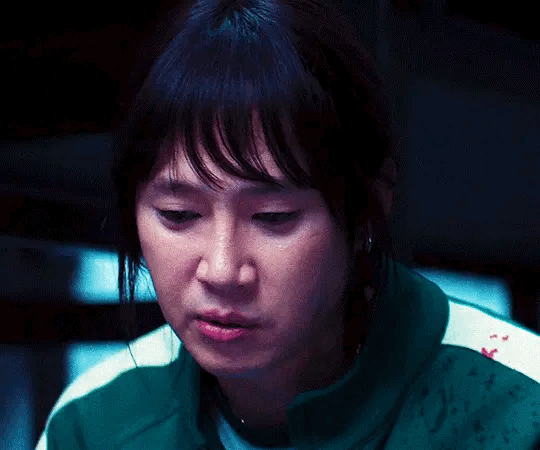

short summery - a few scenarios about dating the one and only, cho hyun-ju! (w/ fem!reader)
a/n: i’m not a trans person so i obviously can't know what that feels like, but i also never want to ignore that part when writing smth w/ her since it's an integral part of her identity! lmk if there ever is something that i should fix!

dating hyun-ju would probably have to happen either before her transition or quite a while after because she just wouldn't be in the right headspace to meet someone new during the early stages of all that change. it just would be a period in her life where she needs a lot of space and time for herself, so romantic relationships would definitely not be one of her priorities.
however, dating hyun-ju before she starts her transition would give you both several options on how to manage this step in your relationship. firstly, you would have to think about your sexuality a bit, if you haven't already done so. especially, if you would still want to be with her! it would obviously be difficult for hyun-ju to finally decide to come out to you because she loved you and didn't want to risk losing you, but of course, she would still respect any decision you made! sometimes you just have to let go of the things you love, even though it would break her heart if you decided to stay friends. but, either way, she was glad that she could trust you with this!
dating hyun-ju after she came out to you would lead to you helping her as much as you could through the steps of feeling more comfortable in her body and standing by her side after losing family and friends. you were ready for her to share her mental problems and more with you, so that you could support her, but hyun-ju would try to burden you as little as possible with all that stuff. having you by her side was enough for her and she also just didn't like complaining to the one person who made her forget about all the negative things in her life. so, maybe after a while, you two would agree that she should try therapy! it would be something that could reinforce her in a way that she felt more comfortable with when it came to her problems, and it would help her tell you about some things in a way that wouldn't overwhelm you or her.
dating hyun-ju would generally mean that you would always feel safe by her side, not only because she was a very understanding person and a good listener - but also because she was well aware of her own physical strength! there was a time when she was very ashamed of it and it wasn't her fault that society didn't consider muscles and stuff to be 'feminine', but you didn't want her to dislike herself for something that you loved about her. so, you did some research and discovered some great female personal trainers, wrestlers, and the like to show them to her! self esteem wasn't something that could be built overnight, but seeing other women who were like her and confident should still help somehow, right? besides, you two eventually started being fans of these people!
dating hyun-ju would mean that she would unconsciously take care of you in different ways. whether that meant taking you out somewhere or cooking for the two of you. honestly, you would have a hard time returning the favor because hyun-ju would insist that she liked giving more than taking, but she also deserved to sit back and relax sometimes! so, there would be more moments over time when she would let you take the lead and let herself get spoiled a bit.
dating hyun-ju would involve, that you only had to mention something you liked in a conversation once for her to buy it for you. she's pretty observant when it comes to things like that!
dating hyun-ju would mean that when you went to bed at night, you would often have long pillow talks until one of you fell asleep. the length of the conversations always varied, of course, but you both especially cherished the time on days when you were recovering from a busy week. you would just lie close to each other for quite a while, whispering quiet things to each other while the nightlight was on, and find comfort in each other's presence.

#x reader#x female y/n#x female reader#squid game#x you#fanfiction#squid game season 2#squid game x reader#squid game cho hyunju#cho hyunju x reader#cho hyun joo#cho hyunju#cho hyun ju#cho hyun ju x reader#trans pride#lesbian#bisexual#pride#wlw#squid game x y/n#squid game fanfic#squid game s2#squid game 2#ff
407 notes
·
View notes
Text
Fundamentally I believe that writing about the rich and varied human existence is so important, and authors who do this end up seeming prescient in ways that naive analysis often rejects.
Two examples. First; a lot of people ship Frodo/Sam or Legolas/Gimli (or more obscure gay ships like Maedhros/Fingon), and some people say stuff like “well, Tolkien was catholic, he clearly didn’t intend for these characters to be gay.” But Tolkien himself says that he doesn’t write Christian allegory, in fact he despises all allegory. What he does is write about the rich and varied human existence, and when he did so he drew on the experiences of the likely closeted gay and bisexual men he had met over his life! And he synthesized this as just a way people behave, not as ‘representation’ but reality. And we can recognize that while in the early twentieth century, the 15% of people that identify as bisexual in the current generation (gen Z) would likely have married people of the opposite gender, that doesn’t mean they didn’t have same-gender relationships that had romantic elements even if they were never consummated.
A second example; in Tamora Pierce’s the Song of the Lioness Quartet, Alanna, the main character, dresses as a boy and trains to be a knight. As she grows up, she has to re-learn to connect with her femininity in secret with the few people who know who she is (thus making her a paradoxically-apt role model for both trans men and trans women, depending on which parts of the narrative one projects oneself onto). But Alanna never feels truly comfortable as a woman, either, and constantly has to assert both her masculinity and femininity to different people once she becomes a knight and reveals the secret. Tamora Pierce has since stated that if Alanna were born in the modern day, she would likely identify as genderfluid. But these books were written in the 1980s, and while there were people in that time period who were exploring the language of nonbinary and genderfluid identities, it wasn’t really a widespread notion, and while I can’t be sure Tamora Pierce didn’t encounter that language I sort of doubt Alanna was intended from the beginning to fit that identity. Instead, Pierce wrote a character based on the people she knew in life, who perhaps uncomfortably chafed at their assigned gender, and wrote a character who really believably would be genderfluid today, despite (plausibly) not knowing what ‘genderfluid’ was!
And I think that’s beautiful. There’s not really a point to this but just to highlight a perspective in literary analysis that you can lose if you focus too much on the biographical details of the author.
454 notes
·
View notes
Text
tbh my opinion isnt so much that trans men cannot have male privilege. its that the way we understand male privilege is based in cis women, specifically otherwise privileged (esp. otherwise-gendered privilege, i.e gender-conforming/straight/perisex) cis women's understanding of gender as something static and inherent to who you are, rather than something fluid which is, in part, constructed by society and placed onto you separately in every moment.
can a trans man experience (cis) male privilege? yes. can a trans woman? yes. and so can a cis woman! hell, a femme perisex cis woman with a gender neutral name could if she's assumed to be a cis man on a resume. male privilege is not an on/off switch. the idea that it is stems from cissexist understandings of male/female as entirely separate and static categories which everyone can and must be understood through. trans people in feminism are expected to constantly defend and deflect accusations of being Privileged Male Oppressors by promising cis perisex women that our experiences are just like theirs! we don't have any scary opinions that don't align with their worldview! we swear we won't ever make them have to reflect on how being cis+perisex has biased them and potentially made their analysis of gender at all inaccurate! trans experiences are only considered valuable to cisfeminism to the extent that they reaffirm what cisfeminists already hold true. thats why they only ever want to talk about a very simplistic narrative around wages pre/post-transition. its extremely unthreatening to cis people because it presents transness in patriarchy as just going from one cis role to another; it doesn't ask cis feminists to expand their paradigm to include the ways in which trans people are treated as a class and their own complicity in transphobic oppression.
which is why trans men have been getting fucked over by trans-affirmng cisfeminism. because by virtue of having our gender acknowledged, we are expected to forfeit our place in the feminist movement and adopt the role of outsider along cis men*. and its also why trans women and MTX people get fucked over the minute they cannot or refuse to describe their experiences through the one or two approved narratives. cisfeminism cannot tolerate transness-as-transness. it has to be compressed and reduced and diluted into something that fits within a cis-centric framework. we aren't allowed to have nuanced and intersectional conversations about trans men & other trans folks relationship with male privilege, the things we have to sacrifice to there, how fleeting it can be, the fact that for some of us being read as "biologically male" is actively more dangerous than being read as female... if it isn't familiar to cis women, then it means you aren't really oppressed.
*cis men should not be outsiders in feminism either btw but thats another post
#did not mean for this post to get this long but c'est la vie#m.#transandrophobia#transmisandry#anti transmasculinity#transunity#theory
1K notes
·
View notes
Text
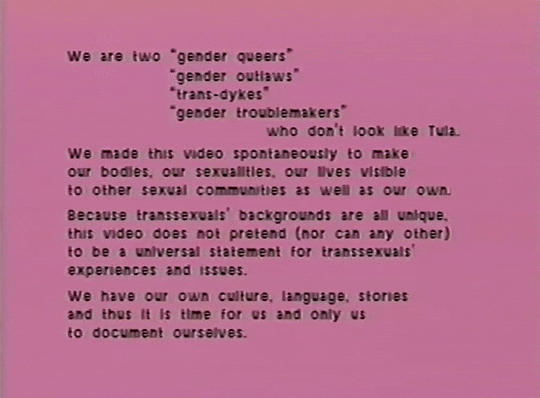





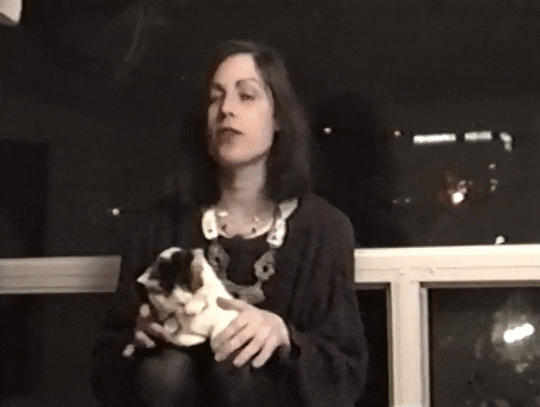
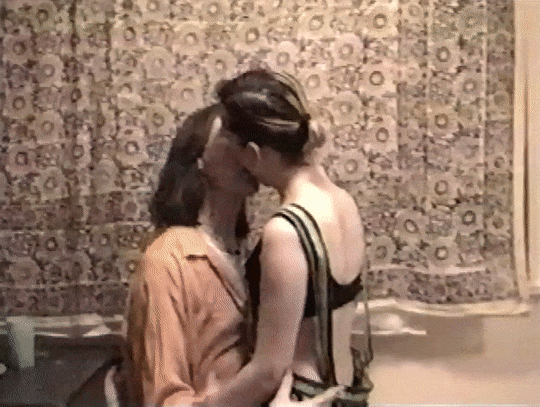
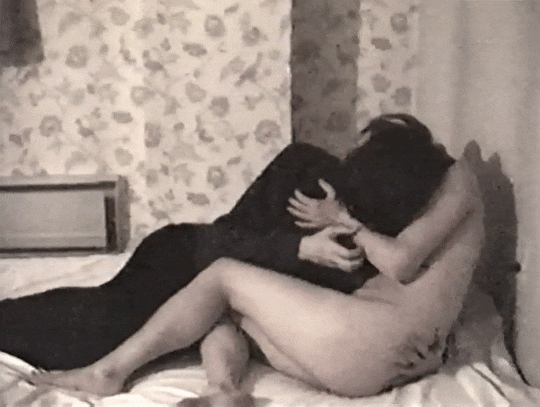

GENDER TROUBLEMAKERS (1993) dir. Mirha-Soleil Ross & Xanthra Mackay What happens when two Transdykes get sick of non-transsexual's uninformed representation of their sexualities and their lives? They grab their 8 millimeter home video camera, their last 200 bucks, and come up with an uncompromising in-your-face flick about their shitty relationships with gay men and their unabashed attraction to other trans women. (link in title)
#lgbt cinema#trans cinema#gender troublemakers#gender troublemakers 1993#canadian cinema#lgbt#trans#transgender#lesbian#canada#lgbt movie#trans movies#canadian movies#lgbt film#trans film#canadian film#lgbt media#trans media#queer cinema#north american cinema#Mirha-Soleil Ross#Xanthra Mackay#1993#90s#1990s#90s movies#90s films#90s cinema#1990s movies#1990s cinema
4K notes
·
View notes
Text
actually, genuinely, people who are defending or are still "on the fence about" neil gaiman, tell me, what do you think is more likely:
(a) two women who have never met, who live oceans apart, and who engaged in relationships with neil gaiman two decades apart, and whose stories line up down to the manner in which gaiman acted during sex and the way in which he abused them, both decide to lie about being sexually assaulted by a man who they were apparently actually in a completely loving consensual relationship with (one of them going so far as to file a police complaint in 2022 that lead to an investigation that is still ongoing), undergoing serious personal, social, and legal risk, all to gain the sweet sweet reward that i keep hearing women who come forward about sexual abuse by famous men receive but coincidentally never actually see them get. possibly as part of a transphobic psyop to get back at a different man for supporting trans rights, or potentially as part of a government psyop to win votes in an election in a country that neither of them live in, and that the one who filed the police complaint did not file it in. or, according to gaiman, because one of them is still upset about the ending of a relationship twenty years ago, and the other is delusional and formed false memories of assault due to a medical condition that she does not have and never has.
(b) a rich and famous cishet white man sought out relationships with much younger women who he was in a position of power over and sexually abused them
592 notes
·
View notes
Text
ok so. the thing about jang hayoung is. her being transgender is explicitly meant to represent her autonomy as a person, and show how limited kim dokja's understanding of twsa is. like jang hayoung as the character kim dokja knows from twsa is perhaps the character who brings up the biggest questions re: character's personhood because kim dokja literally designed her, she's his oc. so we are forced to question her the most - are her traits and personality more attributable to her own choices, or are they entirely kim dokjas, for example. kim dokja knows everything about her, she was entirely his idea, and it leads to all sort of ethical dilemmas about exactly how much she can be considered her own person and what exactly their relationship to each other is.
or it would, if jang hayoung doesn't neatly sidestep all that 'does she even truly exist outside of kim dokja's perception of her' nonsense by looking firmly into the camera and saying yes, obviously. he doesn't even know im a girl! so her gender is used to establish both her autonomy as a real human being AND demonstrate that kim dokja really doesn't know as much as he thinks he does, because hey it turns out even if you create them yourself people are sort of unknowable. i wonder if that relates to any of jang hayoung's themes about communication or something
anyway. these are two ideas firmly shoved into kim dokja's face by jang hayoung's gender identity, and they are two ideas he is deeply uncomfortable with. they force him to confront some thoughts he's been deeply suppressing and conflict heavily with his worldview. and unfortunately, sing shong decided to represent this discomfort with what jang hayoung's gender establishes by showing it as discomfort with jang hayoung's gender itself. that is not to say that kim dokja isn't being organically transphobic when he misgenders jang hayoung, just that that distaste for a conflict within his (gendered) worldview represents his distaste for a conflict within his (reader) worldview.
and this is bad. this is clearly a very transphobic and specifically trans misogynistic way to demonstrate this idea. its genuinely very distasteful to me that they decided to use a trans woman character like this. it casts a dark cloud over her character and the interesting things her transness represents - as well as one over the entire novel, not helped by the many other instances of transphobia we see. and i want to clarify that i do see it as bad and distasteful before i draw the following comparison, because as much as i love reclaiming homophobic and transphobic parts of the stories i like, i am deeply cautious of doing so without clearly acknowledging the harm they cause. also, i am a trans man, so i want to tread carefully when it comes to transphobia against trans women specifically.
but i do think its notable that sing shong clearly establish this link between transgenderism and autonomy and struggling to be understood within the story, and then give us a main character who's entire life has revolved around chasing those latter two things. a character who spends the arc jang hayoung stars in either in an opposite-sex-transformation or learning a 'woman only' sport as a 'man'. yoo joonghyuk, just like jang hayoung, is a character who challenges kim dokjas ideas about what it means to be a person vs character. yoo joonghyuk's entire arc is about chasing that autonomy that jang hayoung so clearly establishes through being transgender. yoo joonghyuk spends multiple arcs trying to get through to kim dokja that he does not understand yoo joonghyuk just because he happened to read about him in the way that jang hayoung clearly does when she declares herself a woman.
this is a line that the story draws for me, not one im drawing on my own - this is a link between the autonomy yoo joonghyuk wants and the gender identity jang hayoung has that orv has already firmly established (although in a frequently transphobic way). and i think thats extremely interesting to acknowledge and explore, i think its a very clear part of yoo joonghyuk's character in this arc that never really goes away. and thats (part of) why yoo joonghyuk's end is [transition]
295 notes
·
View notes
Text
Spanning nearly two centuries of global history, the basic pattern of trans misogyny is much older than TERFs, or right-wing Christians, and extremely consistent. Trans misogyny is not a mere psychological and irrational hatred of trans women. In fact, trans misogyny as a concept helps explain how individuals, or interpersonal violence, can act on behalf of the state or other abstract political movements. At the interpersonal scale, however, trans misogyny testifies to the uncomfortable thickness of social bonds across hierarchies of gender, class, and race. When a straight man lashes out after dating or having sex with a trans woman, he is often afraid of the implication that his sexuality is joined to hers. When a gay man anxiously keeps trans women out of his activism or social circles, he is often fearful of their common stigma as feminine. And when a non-trans feminist claims she is erased by trans women’s access to a bathroom, she is often afraid that their shared vulnerability as feminized people will be magnified intolerably by trans women’s presence. In each case, trans misogyny displays a fear of interdependence and a refusal of solidarity. It is felt as a fear of proximity. Trans femininity is too sociable, too connected to everyone –– too exuberant about stigmatized femininity –– and many people fear the excess of trans femininity and sexuality by getting too close. But sociability can never be confined or blamed on one person in a relationship; it's impersonal, and it sticks to everyone.
The defensive fear and projection build into trans misogyny, whether genuine or performed, is an attempt to wish away what it nonetheless recognizes: that trans femininity is an integral part of the social fabric. There will be no emancipation for anyone until we embrace trans femininity's centrality and value.
Jules Gill-Peterson, A Short History of Trans Misogyny.
#yes i have a pre print copy no i should not have a pre print copy yes i am posting mic drops anyway#jules gill peterson#transmisogyny#readings#interdependence#autonomy#disability#community#relationships#mine
909 notes
·
View notes
Text
Why I'm Enthusiastic About Kamala Harris
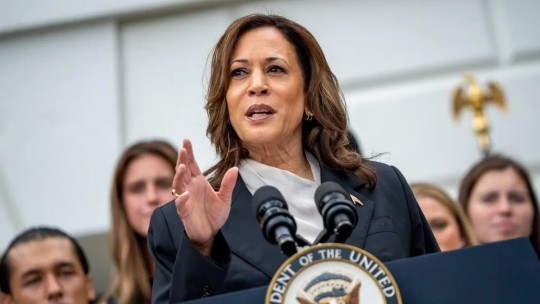
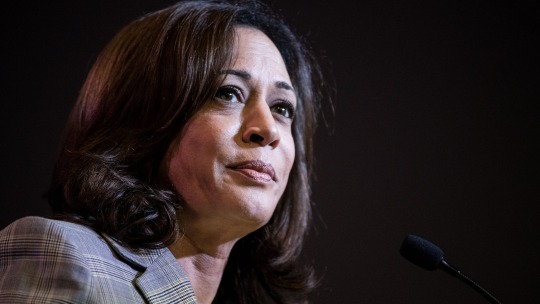
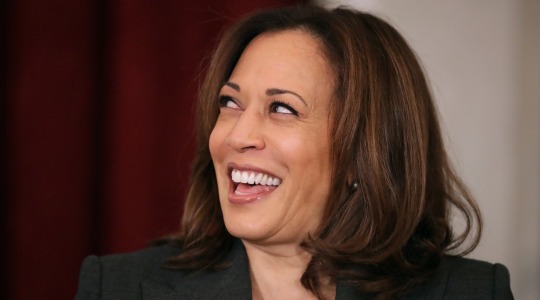
I've seen so much negative talk about Trump and we all agree with that, but I want to highlight what I like most about Kamala Harris and why I'm actively enthusiastic and excited about voting for her:
She is pro-abortion rights and pro- comprehensive sex ed
She would appoint good Supreme Court Justices.
She respects people with a diverse range of political views and would include some voices from both progressive and conservative perspectives in her administration.
She is unambiguously pro-LGBTQ rights, including not just on gay rights but also trans rights.
She would represent continuity with the Biden administration, an administration that I think has done a good job on most issues.
On the issue of Palestine/Israel/Gaza (where I am most critical of Biden), I think Harris is a significant improvement over Biden, and also offers the better path of the only two viable candidates, towards ending the genocide. She has spoken out against the civilian deaths and she has snubbed Netanyahu which is a huge plus in my book.
She has shown a willingness to change her views, such as how she moved from being opposed to decriminalizing sex work in 2008, to being supportive of it in 2019, and being initially skeptical of marijuana legalization in 2010, but coming to support it in 2015. I like a candidate who can change their views, but more importantly, she is changing in a direction I like.
She would be good on the economy; she opposes tariffs, and would continue the Biden administration policies which have led to economic prosperity.
She has a solid and fairly diverse track record of experience, working as attorney general for the largest state, then senator for that state, then VP.
She has worked to combat over-incarceration and cruel treatment of people in prison, doing things like reducing mandatory minimum sentences and working to reduce recidivism, opposing solitary confinement, ending private prisons, and ending cash bail. She has also pledged to use the president's clemency powers to release a lot of people who have been imprisoned unjustly or given unfairly harsh sentences.
She has a concrete plan to enact immigration reform that would adequately fund the processing of asylum applications and fix the backlog of immigrants at the border. And the plan has broad bipartisan support.
On top of this she also has already done some things to address the root causes of migration in Latin America, particularly people fleeing Guatemala, Honduras, and El Salvador
She is pro-net-neutrality.
She supports universal healthcare, but also has concrete recommendations for how to improve the current status quo.
She is pro-science, including on issues like climate change, COVID, vaccinations, and health and nutrition. Her mom was a scientist!
She is pro-Ukraine, wanting to keep Russia out of Ukraine and ensure Ukraine wins their war of defense and maintains their independence.
She is across-the-board better on women's issues, not just reproductive rights but also sexual violence and domestic violence, workplace equality and the pay gap, and women's issues in Latin America (which is related to the immigration pressure I mentioned above.)
She generally takes stances on foreign policy I agree with, being skeptical of leaders (Putin, Orban, Netanyahu) I want us to be skeptical of, and working with and looking up to the ones I want us to work with and look up to (Olaf Scholz, Emmanuel Macron). She already has a working relationship with many of these leaders too, and has a reputation of being both personable and tough, just what I'd want.
She's smart, well-educated, and surrounded with smart, well-educated, and wise people. Her campaign is stable and well-run, and I trust her to put together a team of competent advisors and run this country competently, probably even more so than Biden has done, and Biden has done a pretty decent job, exceeding my expectations even.
Harris also has an impressive list of endorsements. I can't possibly be comprehensive here, but it includes people as diverse as the most progressive Democrat Lawmakers (Bernie Sanders and AOC), some of the most conservative former GOP legislators (Jeff Flake, Liz Cheney), and over 100 former GOP staffers including a disturbing number of insiders from the Trump administration. This is telling! You don't see this sort of whistleblowing and defection from within the Biden administration.
The fact that Harris has racked up endorsements from people spanning the whole political spectrum from solid-right to solid-left and everything in between, impresses me. This is the sign of someone who is going to be good at getting people to work together, someone who will listen to a wide range of viewpoints and develop better policy and take better courses of action as a result. It's what I always want in a president.
In some elections I have been frustrated that I'm voting for a "lesser of two evils" but this time around I actually feel actively enthusiastic about Harris. I am excited to vote tomorrow and excited to finally be done with this election, and I am cautiously optimistic that it is going to turn out really well.
I encourage everyone to vote and make sure to make sure everyone close to you is also voting!
273 notes
·
View notes
Note
could you expand / share reading materials on "gender is a structure that mediates access to personhood"? i feel like that's an important point that i don't fully grasp. especially because it is my understanding that until relatively recently even white, bourgeois, cis-heterosexual, perisex etc women were also denied personhood, but were already gendered as women, right?
thanks in advance!
I’m so sorry you sent me this ask like three months ago and I’m only getting around to it now lol
This is going to be a long post. I will be talking a lot about citizenship and rights in this post. I’ll include citations, but two overarching texts I will be engaging with a lot are Unequal Freedom (2004) by Evelyn Nakano Glenn and The Three Worlds of Welfare Capitalism (1989) by Gøsta Esping-Andersen.
This is also not meant to be a comprehensive answer to your question. I am much less familiar with migration & refugee scholarship, which is obviously deeply engaged with the concept of citizenship as an apparatus for granting rights. I’m flagging this because my answer has a particular focus that is not generalisable. Everything I say is not “the answer” to your question, but an answer informed by specific domains of scholarship.
First, I think a good place to start is that when we talk about ‘personhood’ as a status that a human being can or cannot possess, we are often talking about a status that is realisable through citizenship. ‘Personhood’ is itself a legal term, and we can see this in how stateless people (i.e. people with no citizenship) are treated - because rights are granted by and administered through states, being without state citizenship means you are unable to realise any set of rights, and therefore, you are rendered as a non-person. The UN has two separate conventions on the rights of stateless people for example, as being stateless is necessarily an international issue. I think this approach helps makes sense of why “human rights” is a popular framing in discussions of how to remediate inequality (e.g. “trans rights are human rights”). The “human” part of that equation is only realised through the attainment of “rights,” i.e., through citizenship. Citizenship = personhood can also be seen when people invoke “second class citizens” as an articulation of legal, political, and societal discrimination - i.e., groups of people who have less/no access to rights compared to other groups within a state. Systems of classed citizenship often emerge from regimes of settler colonialism, slavery, and apartheid (Glenn discusses this in her book).
The basic Marxist intervention in this discussion is that this class system still exists even in places that have abolished slavery, abolished apartheid, and/or gone through formal decolonisation, because state law under capitalism is fundamentally unjust. Marx calls law the “mystification of power” (I believe he says this in The German Ideology? I'm rusty on my Marx readings lol) - he argues that law is a bourgeois system of justice that caters to the wealthy and powerful and disenfranchises the poor and marginal, but appears as neutral and fair through a liberal “theater” (Marx’s term from The 18th Brumaire) of equality and democracy, mystifying its actual effects and purpose (The Red Demiurge (2015) by Scott Newton is a book about Soviet legal history that goes into some of this. His focus is on the evolution of the Bolshevik relationship to law as the USSR developed and encountered quite literally new legal problems that emerged as a result of the formation of a socialist state). This is also part of the Marxist critique of nationalism - if state citizenship is what grants access to rights, and citizenship is classed (through your relationship to production, through white supremacy, through patriarchy, through colonial status, through religious status, through etc), then equality does not legally exist, that all equality is bourgeois equality, i.e., not universal, not equal.
Gøsta Esping-Andersen provides a really helpful theory of thinking about citizenship rights within a capitalist state (his book only focuses on Western imperial core states, so just flagging that lol). He begins by arguing that:
all markets are regulated by the state, there is no actual “free” or anarcho-capitalist market,
because of this necessary regulatory function provided by the state, the commodity of wage-labour (i.e., the process of selling your labour-power as a “good” or commodity on a market in exchange for money in the form of wages) is likewise always regulated to some degree, and so finally,
welfare should be understood as the regulatory system of the commodity of wage-labour.
This regulatory apparatus is what grants people “social citizenship rights” - sick leave, pensions, disability and unemployment insurance, welfare payments, food stamps, tax bracket placements, childcare, healthcare, education, housing, so on and so on. Within this framework, Esping-Andersen demonstrates that various welfare regimes produce different citizenship classes - Canada, Australia and the US, for example, explicitly reproduce an impoverished “welfare class” through a marginal, means-tested welfare regime that only provides benefits to the very poorest. Various European countries by contrast tend to have what he calls a “corporatist” welfare regime that often grants different social citizenship rights based on which occupation you have, which he argues emerged from feudal and pre-capitalist religious (esp. Catholic) social forms of organisation.
ANYWAY, the purpose of doing all that set-up is to contextualise how we arrive at the question of gender. Feminists make the basic point that citizenship is also classed by gender - in Unequal Freedom, Glenn talks about this in the US, where white women were legally treated as extensions of their husbands and had no access to property rights, voting rights, and so on. Black women, in contrast, were treated sexually as women by slaveholders (i.e., raped and abused) but denied any and all personhood on the basis of their slave status. Citizenship in the US was historically based first on your ability to hold property (reserved for white bourgeois men), and then on your ability to “freely sell” your labour-power on the market - white women were denied citizenship on this basis because they were consigned to managing what was defined as the “private realm,” i.e., the realm that houses free labourers (white men). This public/private distinction emerges through capitalist markets and the commodity of wage-labour, which produces a sharp distinction where productive labour takes place “out there” (paid for in wages by the capitalist class) and reproductive labour takes place “in here” (i.e., labour that is not paid for in wages* by the capitalist class and forms the social basis of reproducing the public labour pool).
*for white women. see below
As Glenn argues, this public/private distinction in the US is fundamentally racialised. We can see this difference in the emergence of the suffragette movement, where white women appeal to their whiteness (i.e., free labour status) as the rationale for being granted the right to vote. Black women were disqualified from this movement, and did not benefit from white women’s demands for equal citizenship on the basis of them providing all this unpaid reproductive labour to their white husbands, as Black and other racialised women often provided domestic housekeeping labour for white women (unpaid during slavery and for indentured servants, for wages after its abolition). This leaves Black women without a private realm, subjecting them to a “purely public” arena that is uniquely difficult to organise for unionisation and/or improve working conditions (Deborah King talks about this further in Multiple Jeopardy, Multiple Consciousness (1988)).
Trans-feminism explicates this further - coercive sex assignment at birth classes people on the basis of reproductive capacity. “Females” are impregnated, “males” do the impregnating. This particular system of sex assignment is deeply tied to colonial population management concerns, where measuring the labour capacity of colonised subjects was a matter of managing white wealth (as well as making sure “there weren’t too many of them” compared to white people in colonies - this was especially a major white anxiety after the Haitian Revolution at the turn of the 19th century, the largest slave revolt in history. See Settlers by J Sakai). You can read Maria Lugones’ papers The Coloniality of Gender (2016) and Heterosexualism and the Colonial/Modern Gender System (2007), Alex Adamson's (2022) paper Beyond the Coloniality of Gender, and Guirkinger & Villar's (2022) paper Pro-birth policies, missions, and fertility for some introductory reading.
(Note: patriarchal gender hierarchies predate and exist outside of European colonial domination - it is a popular white queer talking point that Europe invented gender, that indigenous peoples actually all had epic radically equal genderfuck systems that were destroyed by Europe, and this is a very patronising and racist historical generalisation that I want to avoid making. Third World/Global South feminism is a necessary corrective to this - an arena of scholarship I am sadly not well versed in. Sylvia Wynter is the only scholar I’ve engaged with on this topic, which again, is a very limited slice. I welcome reading recommendations in this area).
While sex assignment is coercive for everyone, it is a particular problem for trans people, who are accused of impersonation and ID fraud if our sex markets conflict with our gender presentation, or we don’t “look like” our sex marker to cis people. Because you need a government ID to do basically anything - getting a job, applying for an apartment, getting a driver’s license, going to school, buying a phone plan, being on unemployment, applying for disability, filing an insurance claim, doing your taxes, opening a bank account, getting married, going to the hospital, buying lottery tickets at the corner store, etc - and sex markers appear on basically all government ID in many countries, trans people are systematically denied a whole range of citizenship rights (and thus personhood) on the basis of this sex assignment. Trans people are not merely treated as the wrong gender, they are ungendered, and by this process, rendered ineligible for personhood. Like just as an example, gay marriage is a luxury to trans people, as gay marriage is based on the state recognising both you and your partner’s gender in the first place. (See Heath Fogg Davis’ paper Sex-Classification Policies as Transgender Discrimination (2014) for example. Butler also talks about this on a more fundamental level in Bodies That Matter (1993), and Stryker & Sullivan also discuss this in The Queen's Body, the King's Member (2009)).
This is likewise the impetus behind anti-trans bathroom bills and sports bans - citizenship guarantees, among other things, a right to public space, and these bans are meant to deprive transgender people access to those spaces. These bans should be understood as a way of circumventing the much more difficult process of revoking the citizenship of trans people outright by using a component of citizenship (sex assignment at birth) to impoverish the quality of citizenship that trans people have access to. This is why bans on medical transition are not actually just about medical oppression, but the oppression of trans peoples’ abilities to live in society in general. An instructive parallel is abortion bans for pregnant people, who, in addition to facing medical oppression and violence by being denied healthcare, are likewise systemically marginalised through being forced into the role of “mother” (again we see how cissexualism reduces people to reproductive capacity), economically marginalising them by reducing their capacity to earn a wage, tying them to partners/spouses that now have greater economic and social leverage over them (and thus have greater capacity to assault, rape, and murder them), depriving them of the choice of alternative life paths, and so on.
It’s generally much more difficult to get the state to sign off on unilaterally oppressing a group of citizens by depriving them of citizenship completely, so attacking a group through more narrow and particular policies like healthcare or the use of public space (with the ultimate goal of depriving them of their rights in general) is often much easier and more productive. See Beauchamp's 2019 book Going Stealth: Transgender Politics and US Surveillance Practices, who talks about this in the context of anti-trans bathroom bills in chapter 3. This is also a common thread in disability scholarship, as disabled people are likewise denied much of the same citizenship rights through similar logics - the book Absent Citizens (2009) by Michal J Prince talks about this in the Canadian context. To give an example he uses in the book, in Canada, accessible voting stations were only federally mandated in I believe the 90s, meaning that disabled people were practically disenfranchised until about 30 years ago in Canada, even though there were no laws explicitly banning disabled people from voting.
As a result, any barriers put in place by the state to change your legal name and sex marker should be understood as a comprehensive denial of personhood, not only because we as trans people want our IDs to reflect who we are, but because those barriers make it difficult to do literally anything in civil society. This the basis behind the cry of “trans rights are human rights” - taking away our healthcare rights also fundamentally denies us equal citizenship (and thus personhood), because healthcare is where we get all those little permission slips from doctors and psychologists to change our name and gender marker in the first place. This is of course not remotely the same as being made stateless (trans refugees are placed in a particularly harrowing and violent legal black hole, for example) - I as a white trans person living in the imperial core still benefit from a massive range of material, political and social privileges not afforded to many others, but my transness positions me at a deficit relative to cis people who have the same state citizenship as I do. As I hope I've made clear, it's not a binary case of either having or not having citizenship, but that citizenship is classed, and the quality of your citizenship is heavily dependent on a whole range of social, political, legal, economic, and historical factors that are all largely out of your control.
So not only is gender a barrier to citizenship, it mediates access to realising the full range of personhood within a regime of state citizenship. Trans people are not the only group effected by this, as I described above, but trans people are a group that makes obvious the arbitrary, coercive, and unequal nature of sex assignment through its connection to state citizenship.
241 notes
·
View notes
Text
Wanted to paint some of my favorite characters, nothing more nothing less
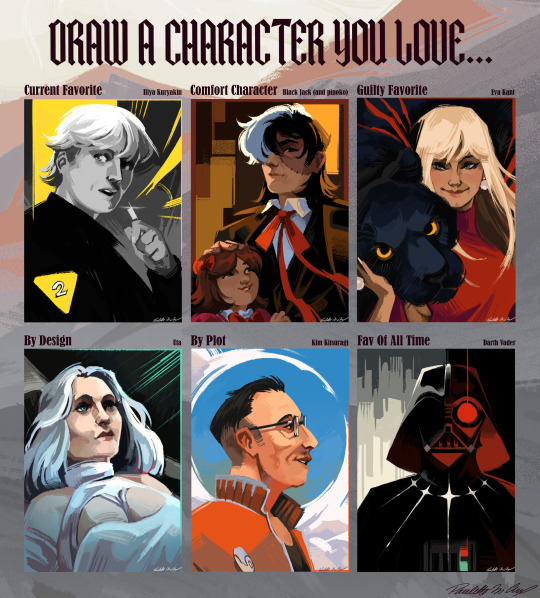
[COMMISSIONS]
Way too much yapping like an embarrassing amount, the individual portraits and the template I used below vvv
I shouldn't be allowed to talk about my favorite characters- especially to people who (presumably) don't know them xjfkdk apart from the very popular ones ofc
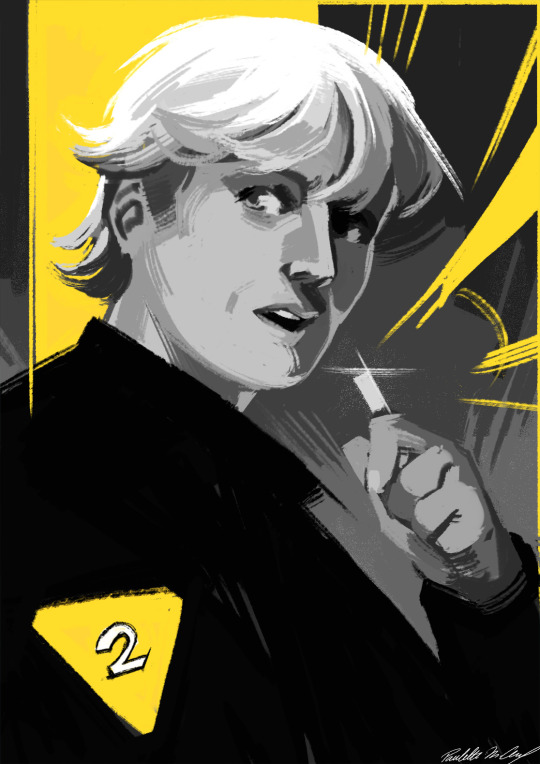
ILLYA KURYAKIN (The man from U.N.C.L.E)
gay ass little Russian spy I love him he is so *dramatic* and a huge nerd and a Beatles fan and into fashion design- perfect pocket size blorbo ;w; also seeing a Russian character being given a positive leading role in an American tvshow from the 60s ?? Yes he lives in New York and works for UNCLE America.... But he is still a communist ?? Incredible ! Also I really like the fact he isn't given the cliché personality traits often given to Russian characters i e anger issues drinks a lot violent ect (looking at you shitty(imo) modern remake... What did you do to my little guy ;;). In a close contest with Spock for the "gayest man from tvshow" of the 60s..... And in my heart he is winning djdkd for me the gay subtext of muncle hits so much more because it's not a scifi show- it's closer to home, Napoleon and Illya were *like that* in the present day of the 60s, they were both human, and no alien fuckery made them go to the village more than once or play house in the suburbs or get attached ass up to get pegged on a regular basis... Truly a show that feels written by an old queen and a guy with the biggest fem dom fetish jkvjjkb (don't get me wrong tho I adore star trek tos and spirk too <3)

KUROO HAZAMA and PINOKO (Black Jack)
sometimes I rewatch some of the oavs from the 90s when I'm sad :) I had a huge phase a couple years back when I read nearly all the manga (should really finish it... Or reread the whole thing frankly), watched *all* the shows (bar young black jack, hated that shit) and idk I just love this venal bitch so much- him and his daughter and his conflicted feelings for his tboy ex that he still loves kfkfkf btw I'm dying for a modern take on this like please please please I'd love to see Kei Kisaragi's story rewritten a bit (trans character in the 70s sure was progressive but oh boy-), because him and black jack's relationship makes me so *weak*.... And maybe see him a bit more than in one story- anyway ! When it comes to his daughter Pinoko, it's very hit or miss- when the writers lean on the cute father adoptive daughter relationship it's great, when they lean more on the whole "she has a crush on him" (very much like a child in most case, and he *never* reciprocate thank god) and bring up the fact she is technically 18 a lot (she was an evil tumor trapped in her sister before he created a body for her- black jack shit dw), and she gets jealous of other women.... Well it's terrible and I'm uncomfy :(
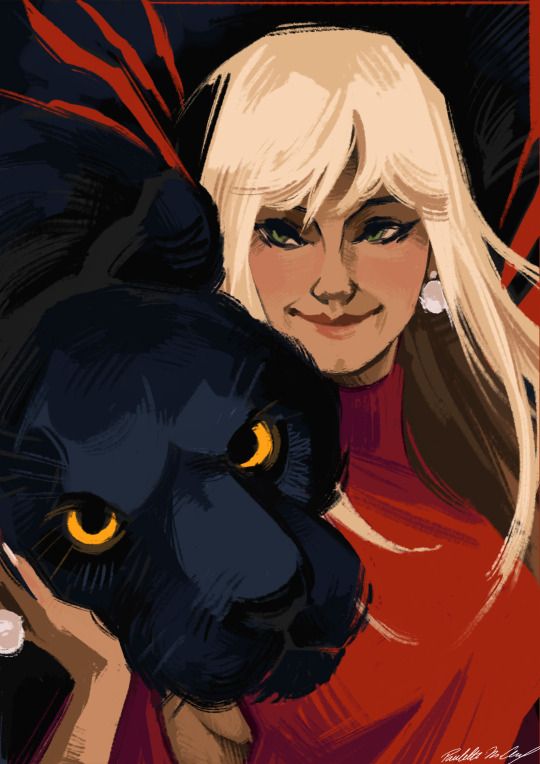
EVA KANT (Diabolik)
Look.... You just can't show me danger diabolik 1968 and not expect me to become insane djdkdkdk she is so cool ;; !!! Her and her devious eel of a man (here as a panther, because even tho I haven't read the comic yet, I'm taking an educated guess that all the panther imagery is here to represent him, the lethal twunk always in the all black gimp suit... And if it's not then fuck my entire life ig fjfkkd), the cuntiest het couple you've ever seen, such freaks I love them ! Partners in crime that will blow up the tax offices of the whole country if you try to put a bounty on them <3 they are in the guilty faves category only because I'm this invested in these characters after 1 (one) movie fkfkf watched the first two remakes and was hmmm let's say underwhelmed, could have been worse but going after the 60s one ie peak cinema was hard... I went in fully invested in these heterosexuals and they still fucked up their romance and relationship ;; (don't spoil me the third one btw haven't seen it yet ! I know it's the yaoi one- which doesn't give me much hope for Eva tbh...) I'll soon start reading the comics tho ! Managed to find all twelve volumes of "Il grande Diabolik" in french for pretty cheap so I'm excited for that :D (might scan them and upload them online because omg I tried finding scans in *any* language and only found a dubious website that sold digital copies for 7€ a volume ??? What is this)
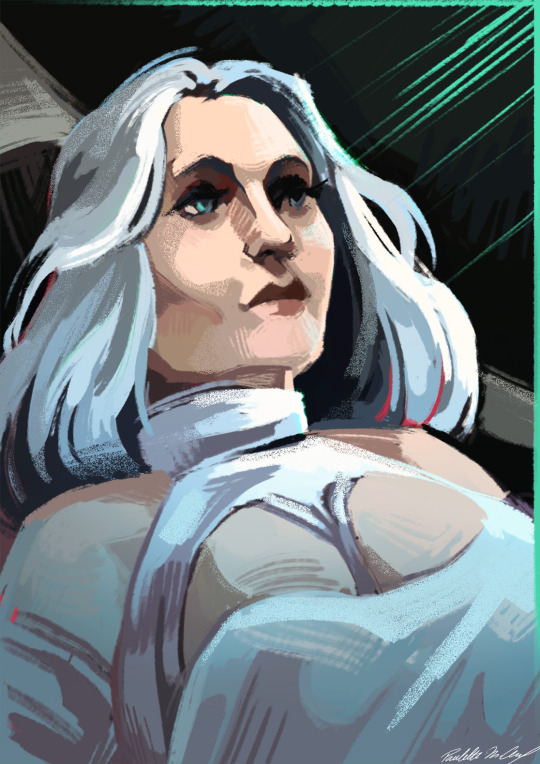
UTA (The Void / Тургор / Turgor / Tension)
Apathy girlyyyyy she just like me for real for real nfkfk what absolutely charmed me about her is yes her design, but more importantly her chamber's design (if you've never played the void, a sister's chamber is a space that represent her. You get a sense of who she is by exploring her chamber before finding her and talking to her soul it's great). The lonely island out at sea, her laying down on a suspended steel boat in a grotto, looking passively at the moon by a crack on the ceiling.... And the moon is looking back. Incredible ! I love this game so much
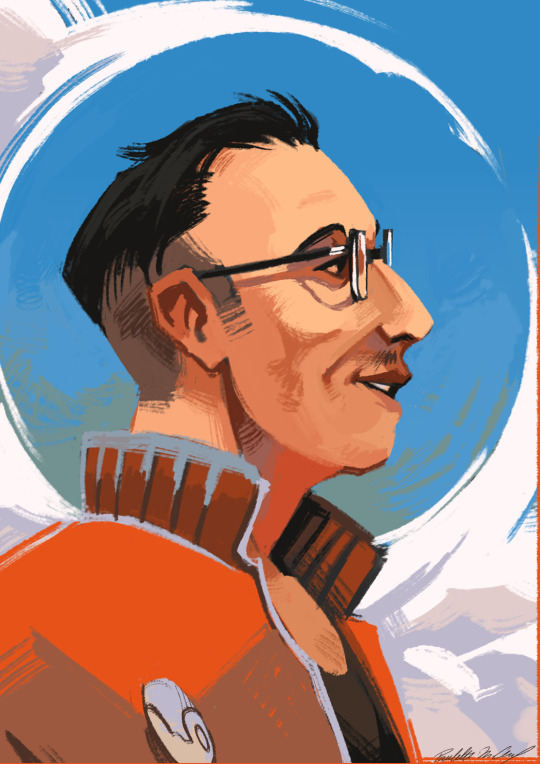
KIM KITSURAGI (Disco Elysium)
Do I really have to explain this one ? When I played the game with quiji I remember I kept saying "when Kim talks, we *listen*" djkdk we did get a good grade in Kim Kitsuragi and got him to dance in the church <3 this fucking centrist cop wormed it's way into my heart and many others because of course he did. The only Kim K in my eyes. Also funny anecdote : before I played Disco Elysium, I had one concept art masterclass where a kinda famous concept artist came to give advice, make us really stressed then give us a shitty grade.... And when I tell you this man looked so much like Kim ??? Same haircut, glasses, face with a scar *exactly* where Kim's portrait has a stark shadow on his cheek and he was dressed in an orange top- truly uncanny. Anyway, Kim is so fucking cool how does he do it
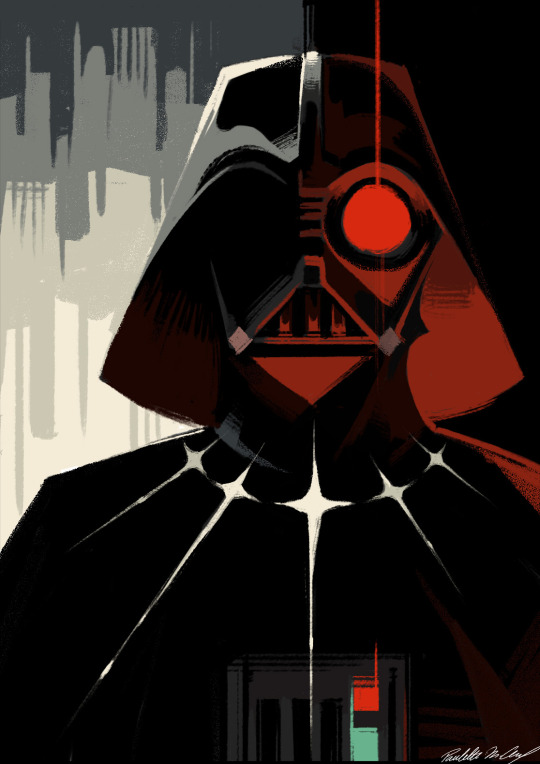
DARK VADOR (La guerre des étoiles)
*sight* not surprising if you know me... and to be clear when I say Vader I don't mean Anakin Skywalker, post barbecue only zouz here. I refuse to yap about this man djdkdk I already do that way to much in ao3 comment sections
And here is the template I used ! Don't know who made it tho sorry...
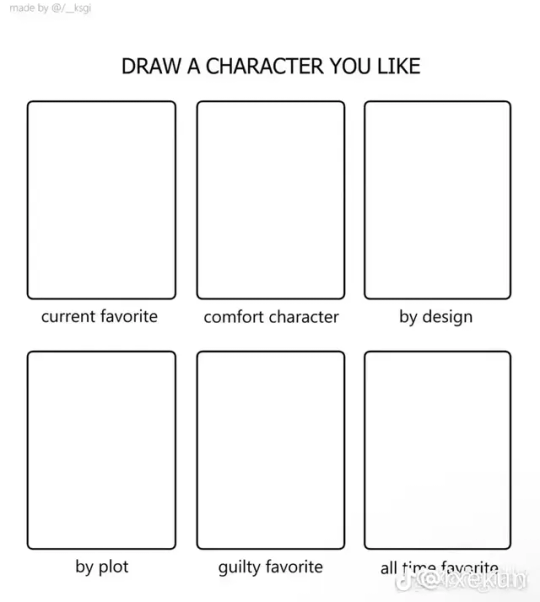
PS : all these where made in 2-3 hours each :D wanted to challenge myself by painting quickly, and I mostly (looking at the Eva Kant one that gave me trouble) succeeded !
#I FORGOT HIS SHITTY LITTLE MUSTACHE OMFG if you saw a clean shaven Kim for a second there no you did not#My favs are the Illya and Vader ones fuivbfd so proud of them#illya kuryakin#tmfu tv#the man from uncle#kuroo hazama#pinoko#black jack#eva kant#danger: diabolik#diabolik#the void#Тургор#turgor#tension#ice pick lodge#uta#kim kitsuragi#disco elysium#darth vader#star wars#star wars original trilogy#artists on tumblr#fanart#digital painting#portrait painting#art#my art#digital art#art template
292 notes
·
View notes